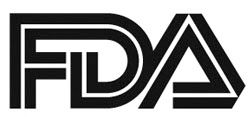FDA Approves Daratumumab + VTD Combo for Frontline Multiple Myeloma
The combination of daratumumab plus bortezomib, thalidomide, and dexamethasone (VTD) has been approved by the FDA for the treatment of newly diagnosed patients with multiple myeloma who are eligible for autologous stem cell transplant.

The combination of daratumumab (Darzalex) plus bortezomib (Velcade), thalidomide (Thalomid), and dexamethasone (VTd) has been approved by the FDA for the treatment of newly diagnosed patients with multiple myeloma who are eligible for autologous stem cell transplant (ASCT).
“The approval of daratumumab with VTD will allow us to use daratumumab with bortezomib in a transplant eligible population. Although we do not use thalidomide in the United States, it opens up the option of bortezomib/daratumumab, which will be particularly useful in patients with renal dysfunction,” Noopur Raje, MD, toldTargeted Oncologyabout the impact the approval would have in the community setting.
The approval was based on findings from part 1 of the 2-part, randomized, open-label, multicenter phase III CASSIOPEIA trial. The study investigated the use of daratumumab in combination with VTd compared with VTd alone in 1085 previously untreated, transplant eligible patients with multiple myeloma. The trial consisted of an induction and a consolidation phase followed by maintenance treatment with daratumumab or observation.
“Today’s approval is an important step forward for patients with multiple myeloma. There are now three different treatment combinations that include DARZALEX for patients newly diagnosed with multiple myeloma, whether they are eligible for ASCT or not. We are grateful for the efforts of the French Intergroupe Francophone du Myelome, Dutch-Belgian Cooperative Trial Group for Hematology Oncology, and Janssen that led to the strong data from the CASSIOPEIA trial, which formed the basis of this new approval,” Jan van de Winkel, PhD, CEO of Genmab, said in a press release.
According to results previously released from Genmab,2in the first portion of the trial the daratumumab combination had induced an improved stringent complete response (sCR) rate compared with 20.3% in VTD alone. The safety profile for daratumumab plus VTD was also found to be consistent with known safety profiles of daratumumab and the VTD combination separately.
Results from part 1 of the CASSIOPEIA trial were presented at the 2019 ASCO Annual Meeting and published inLancetshowing that the sCR rate was significantly higher with daratumumab plus VTD at 28.9% compared with 20.3% in those treated with VTD alone (odds ratio, 1.60; 95% CI, 1.21-2.12;P= .0010). Thirty-nine percent of patients achieved a complete response or better in the combination arm versus 26% in the VTD group. Additionally, minimal residual disease negativity was observed in 64% of patients treated with daratumumab plus VTD compared with 44% who received VTD alone (P<.0001).3,4
The median progression-free survival (PFS) had not yet been reached in either arm, but at the 18 months, the PFS rate was 92.7% with the daratumumab combination versus 84.6% with VTD alone. The hazard ratio for PFS was 0.47 (95% CI, 0.33-0.67;P<.0001).
The trial is the first to ever show a clinical benefit for the combination of daratumumab and standard of care in newly diagnosed patients with transplant-eligible multiple myeloma.
The rate of grade 3/4 treatment-emergent adverse events (TEAEs) were increased with the addition of daratumumab, but the safety profile is still considered acceptable. The most common grade 3/4 TEAEs were neutropenia (27.6% with daratumumab vs 14.7% with VTD alone), lymphopenia (17.0% vs 9.7%, respectively), stomatitis (12.7% vs 16.4%), and thrombocytopenia (11.0% vs 7.4%). Additionally, infusion-related reactions were observed in 35.4% of patients in the daratumumab plus VTD arm.
In a subgroup analysis of the CASSIOPEIA trial presented at the 2019 International Myeloma Workshop, the combination demonstrated a significant benefit for patients with high-risk multiple myeloma. The combination led to a 34% reduction in the risk of disease progression or death compared with VTd alone in patients with International Staging System (ISS) stage III disease (HR, 0.66; 95% CI, 0.32-1.39). In those with high-risk cytogenetics of del(17p) or t(4;14), the daratumumab regimen reduced the risk of disease progression or death by 33% (HR, 0.67; 95% CI, 0.35-1.30).5
Daratumumab also has several approved indications for the treatment of patients with multiple myeloma, including the most recent approval for split dosing to allow for the administration of the first infusion of daratumumab over 2 consecutive days or in a single session.
References
- Genmab Announces U.S. FDA Approval of DARZALEX® (daratumumab) in Combination with Bortezomib, Thalidomide and Dexamethasone for Frontline Multiple Myeloma [press release]. Copenhagen, Denmark: Genmab A/S; September 26, 2019. https://bit.ly/2nzRy05. Accessed September 26, 2019.
- Genmab Announces Positive Topline Results in Phase III CASSIOPEIA Study of Daratumumab in Front Line Multiple Myeloma. Genmab. Published October 21, 2018. https://bit.ly/2CvNSBO. Accessed September 26, 2019.
- Moreau P, Attal M, Hulin C, et al. Phase 3 randomized study of daratumumab (DARA) + bortezomib/thalidomide/dexamethasone (D-VTd) vs VTd in transplant-eligible (TE) newly diagnosed multiple myeloma (NDMM): CASSIOPEIA Part 1 results.J Clin Oncol.2019;37(suppl; abstr 8003). doi: 10.1200/JCO.2019.37.15_suppl.8003.
- Moreau P, Attal M, Hulin C, et al. Bortezomib, thalidomide, and dexamethasone with or without daratumumab before and after autologous stem-cell transplantation for newly diagnosed multiple myeloma (CASSIOPEIA): a randomised, open-label, phase 3 study. Lancet.2019;394(10192):29-38. doi: 10.1016/S0140-6736(19)31240-1.
- Sonneveld P, Attal M, Perrot A, et al. Daratumumab plus bortezomib, thalidomide, and dexamethasone (D-VTd) in transplant-eligible newly diagnosed multiple myeloma (NDMM): subgroup analysis of high-risk patients (Pts) in CASSIOPEIA. Presented at: 17th International Myeloma Workshop; September 12-15, 2019; Boston, MA. Abstract OAB-003.
Isa-Kd Stands Out Among Subsequent Regimens in Multiple Myeloma
April 4th 2024During a Case-Based Roundtable® event, Cristiana Costa Chase, MD, discussed the recommended regimens and trials supporting therapies following lenalidomide-refractory relapse of multiple myeloma in the second article of a 2-part series.
Read More